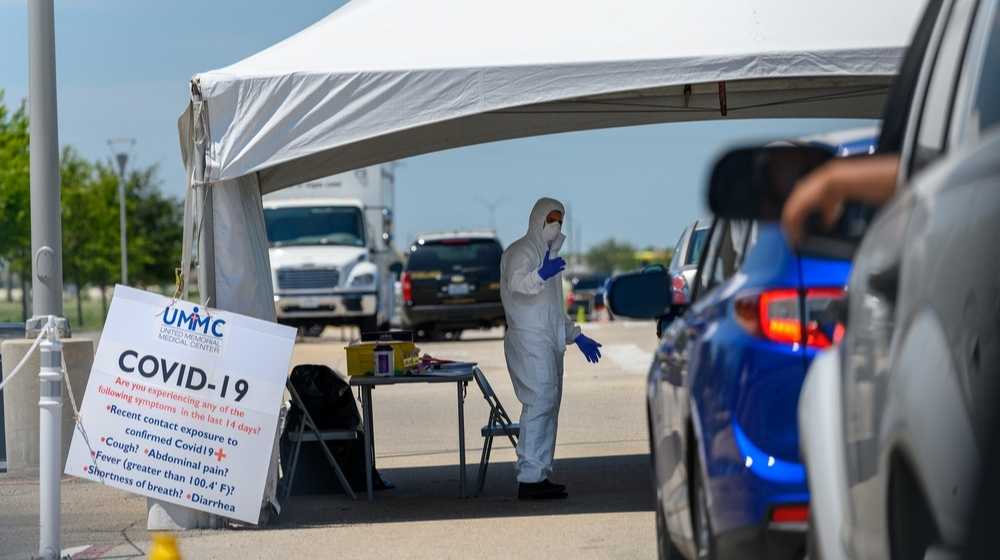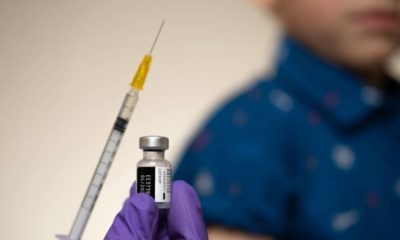Breaking News
The National System for Covid-19 Vaccines has Failed States

The Trump administration started Operation Warp Speed in the hopes to provide a solution to ration COVID-19 vaccines. However, the national system has failed many states.
According to the plan, those who are most at risk would receive the vaccines first. The plan also allocated $16 million on a high-tech system called Tiberius. This technology helps keep track of vaccine shipments and provides suggestions on where to send the doses.
Tiberius, in theory, can allow “granular planning” of vaccine distribution, down to the smallest doctor’s office. It also can provide information on priority populations. Overall, it aims to help lessen the burden on local public health officials.
However, it seems this system has failed to live up to its promise. In multiple states, many officials consider it either irrelevant or too complicated. It has even come to a point that many public health officials in these areas only log onto Tiberis weekly to get the most basic data, which is the number of shipments they were getting. The system also caused patchy releases. The location and how technologically-learned a person is can factor into a place's ability to access the national system.
Initially, Tiberius was meant to be part of the Trump administration’s efforts to show competence and expertise in planning. It comes as the federal government was forced to face an extremely difficult challenge. However, the federal government and local state officials clashed in the end. This had caused finger-pointing as vaccines started to roll out.
For example, Tennessee had released a vaccination plan on Oct. 17. In it, the state wanted to use GIS mapping with Tiberius’ features to pinpoint the areas it wanted to prioritize.
Tiberius: The National Tracking System that Failed States
However, when asked if Tiberius met their expectations, the state’s Department of Health spokeswoman stated that they did not find the system helpful. Instead, she said they use their own system and only get on Tiberius to find out vaccine allocations.
However, there are still some states that use Tiberius’s features in painting out at-risk locations and populations. For example, Arkansas uses the system to find any gaps that they need to fill and to get information for planning. Meanwhile, South Carolina shared that Tiberius helps them a lot, in terms of gathering data to find “priority groups, equity, essential workers.”
Despite this, most states asked by news outlets like USA TODAY said that the data this system provides regarding at-risk populations are not as detailed as the ones the states themselves have developed. Some of these states include Maryland, Oklahoma, Wyoming, Nebraska, and New York. Some states also claimed that the fault lies in the timing. They said Tiberius was released too late. They also mentioned was also too complex to understand by the time the vaccine shipments started coming in.
Tiberius Data Comes from Local Health Units
Many health officials who have the final say on vaccine rollouts say they don’t use Tiberius at all. And even if they did, they would only see “data that they got from us,” as per Dr. Bela Matyas of Solano County California.
As time passes and more vaccine doses roll out, more segments of the country’s population are becoming eligible to get the vaccine. So, the way future shipments are planned will become more complicated so that no place in the U.S. gets left out.
Dr. Rebecca Weintraub of Harvard Medical school praised states for building “hyper-local, detailed data” that the medical sector currently needs to “replicate” a “sense of equity” for the rest of the country. She said they need this more now as it will only “get more complicated” in the near future.
Tiberius was initially the Trump administration’s way of redeveloping the public health system in the country as it faces the COVID-19 pandemic. Meanwhile, Operation Warp Speed, as a whole, is handled by HHS and Department of Defense officials, with some features handled by the CDCP. The said agency also supervises the distribution of vaccines in the country.
Flaws of Operation Warp Speed and the National Vaccine Tracking System
According to Dr. Julie Swann of North Carolina State University, the reception that Tiberius met has revealed Operation Warp Speed’s shortcomings. Primarily, it exposed the plan’s lack of understanding public health in the country. Swann added that the public health sector is currently struggling. There are not enough funds or workers in the field. Because of this, the government shouldn’t have expected this sector to immediately adopt the new system just a few weeks after its announcement.
With this, the HHS released a statement via email. The agency recognizes that Tiberius still needs a lot of work. It announced that it is collaborating with the CDC to add more features to the system that will help with the analysis of distribution data “at a more granular geography.”
Meanwhile, according to Palantir Technologies, the tech company that developed Tiberius, the federal government is not allowing it to make a comment. However, a source close to the development of the system revealed, on condition of anonymity, that the system doesn’t have lofty goals, unlike what the federal government says in news releases.
The source added that many local health departments provide the best data needed for an effective COVID-19 response system.
Up Next:












